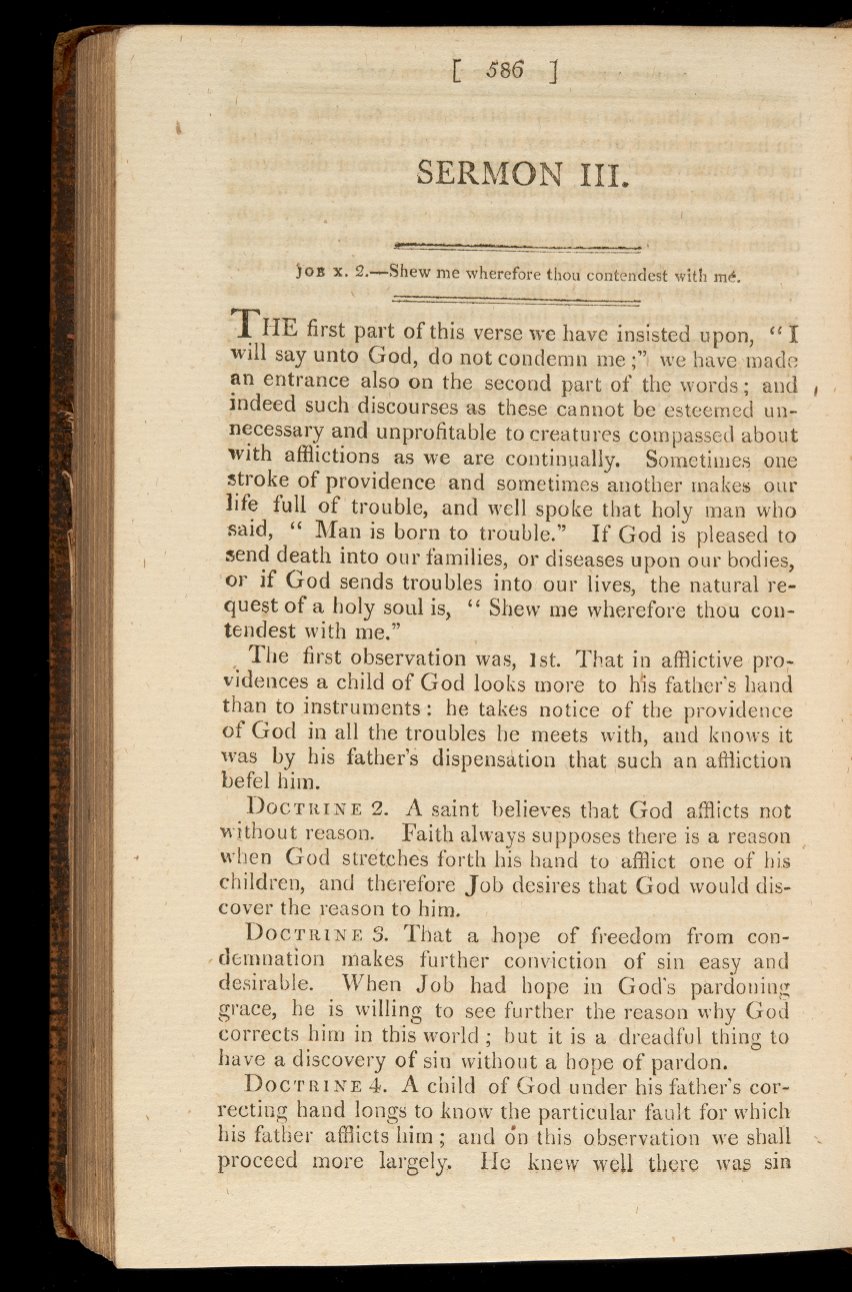

[
586
j
SERMON
III.
}os
x.
2.Shew
me
wherefore thou
contendest
with mé.
THE
first
part of
this
verse
we
have insisted upon,
"
J
will say
unto God,
do
not
condemn
me
;"
we
have
made
an entrance
also on
the second
part
of
the words
;
and
indeed
such
discourses
as
these
cannot
be
esteemed
un-
necessary and unprofitable
to
creatures
compassed
about
with
afflictions
as we
are
continually. Sometimes
one
stroke
of
providence and
sometimes
another
makes
our
life
full
of
trouble, and
well
spoke
that
holy man who
said,
"
Man
is
born
to trouble."
If
God
is
pleased
to
send
death into our
families,
or diseases upon
our
bodies,
or if
God
sends
troubles into our
lives,
the
natural
re-
quest
of
a
holy soul
is,
"
Shew me
wherefore thou
con
-
tendest
with me."
The
first
observation
was,
ist.
That
in afflictive
pro;
vidences a
child
of God
looks more
to hls
father's hand
than
to
instruments
:
he takes
notice of
the providence
of
God
in all
the
troubles
he
meets
with,
and
knows
it
was by his
father's dispensation
that
such an
affliction
befel
him.
DOCTRINE
2.
A
saint
believes
that
God
afflicts
not
without
reason.
Faith
always
supposes there
is
a
reason
when
God
stretches forth
his
hand
to
afflict
one
of
his
children, and therefore
Job
desires
that God
would dis-
cover the reason to
hirn.
DOCTRINE
S.
That a
hope
of
freedom from con-
demnation
makes
further
conviction
of
sin easy
and
desirable. When
Job
had
hope
in
God's pardoning
grace, he
is
willing
to see
further
the
reason
why
God
corrects
him
in
this world
;
but it
is
a dreadful thing
to
have
a
discovery
of
sin
without
a
hope
of
pardon.
DOCTRINE
4. A child
of God under
his
father's cor-
recting hand
longs
to
know the
particular
fault
for
which
his
father
afflicts hirn
;
and
do this
observation
we
shall
proceed
more
largely. I
-Ie
knew well
there
was
sm

















